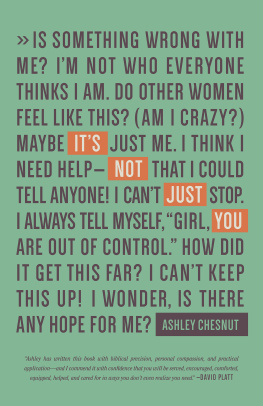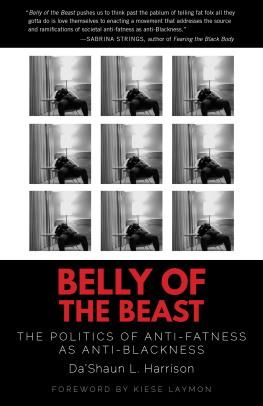R YNN
Julia Serano is the author of four books, including the acclaimed modern classic Whipping Girl . Her writing has been published in the New York Times , the Guardian , Time , Salon , the Daily Beast , Out , Bitch , and Ms . Julia holds a PhD in biochemistry from Columbia University. Her current solo music project is *soft vowel sounds*. She lives in Oakland, California.
Copyright 2022 by Julia Serano
Cover design by Rebecca Lown
Cover image Sylvvie / Shutterstock.com
Cover copyright 2022 Hachette Book Group, Inc.
Hachette Book Group supports the right to free expression and the value of copyright. The purpose of copyright is to encourage writers and artists to produce the creative works that enrich our culture.
The scanning, uploading, and distribution of this book without permission is a theft of the authors intellectual property. If you would like permission to use material from the book (other than for review purposes), please contact permissions@hbgusa.com. Thank you for your support of the authors rights.
Seal Press
Hachette Book Group
1290 Avenue of the Americas, New York, NY 10104
www.sealpress.com
@sealpress
First Edition: May 2022
Published by Seal Press, an imprint of Perseus Books, LLC, a subsidiary of Hachette Book Group, Inc. The Seal Press name and logo is a trademark of the Hachette Book Group.
The Hachette Speakers Bureau provides a wide range of authors for speaking events. To find out more, go to www.hachettespeakersbureau.com or call (866) 376-6591.
The publisher is not responsible for websites (or their content) that are not owned by the publisher.
Library of Congress Cataloging-in-Publication Data
Names: Serano, Julia, author.
Title: Sexed up : how society sexualizes us, and how we can fight back / Julia Serano.
Description: New York, NY : Seal Press, [2022] | Includes bibliographical references.
Identifiers: LCCN 2021045851 | ISBN 9781541674806 (hardcover) | ISBN 9781541674790 (ebook)
Subjects: LCSH: SexSocial aspectsUnited States. | Gender identityUnited States. | Transgender peopleUnited States. | Sexual minoritiesUnited States.
Classification: LCC HQ18.U5 S445 2022 | DDC 306.70973dc23
LC record available at https://lccn.loc.gov/2021045851
ISBNs: 9781541674806 (hardcover), 9781541674790 (ebook)
E3-20220315-JV-NF-ORI
for Rynn
thank you for your love, friendship, and support
especially over these last two trying years
and to all the fun times
well share together moving forward
Human sexuality is such a vast and complex subject that its impossible to cover it in its entirety within a single book. So instead, authors usually examine these matters from a specific angle or focus on a particular subtopic.
A biologist might frame the subject strictly in terms of anatomical or neurological differences between the sexes. An endocrinologist might focus on the role that hormones play in driving sexual behaviors, while a geneticist might explain those same behaviors in terms of evolutionary pressures. A sexual minority of one stripe or another might pen a memoir that delves into aspects of sex and desire that fall outside most peoples purview. A psychiatrist might describe those behaviors as sexual deviations or dysfunctions, and speculate about what supposedly goes wrong in such individuals to make them turn out that way.
A philosopher might question the underlying belief systems that lead us to deem sexual behaviors either right or wrong in the first place. A historian might analyze changes in sexual norms that have occurred over time, while an anthropologist might chronicle differences in sexual identities and practices that exist from culture to culture.
And so on. Each of these perspectives has the potential to provide important insights, but they inevitably tell only part of the story.
I have been researching and writing about gender and sexuality for over two decades now, and I am quite familiar with all the aforementioned perspectives. But from my vantage point, one crucial piece of the puzzle is almost always missing from these narratives. Namely, they tend to portray sex and sexuality as things that individuals do or possess without giving much, if any, thought to how we see and interpret these aspects of people.
I first recognized the importance of these issues back in 2001, when I had a formative experience that relatively few people ever have. After having spent the first thirty or so years of my life being perceived as male, I transitioned to female. Most mainstream accounts of transgender people tend to place all the attention on the ways that we change: our identities, personal journeys, and physical transformations, and how our transitions impact our relationships with others. But having lived through that experience firsthand, what I found most fascinating was the way the rest of the world seemed to change . Small exchanges and mundane interactions at the grocery store, in restaurants, on public transit, and elsewhere suddenly shifted as people began to see and treat me differently.
Of course, going into my transition, I was well aware of the existence of sexism, and knew that I would likely face discrimination once people started perceiving me as female (and this did come to pass). But what I was not prepared for were the countlesssometimes subtle, sometimes majorways in which people interpreted my body and actions differently. Behaviors that would have elicited a particular reaction back when I was perceived as male suddenly went unnoticed or else provoked an entirely different response. People began to make all sorts of new presumptions about my history, interests, preferences, abilities, and motives, as well as how I would (or should) act, or react, in a given situation. In other words, while my body had taken on a new shape, mostly it just took on new meanings.
In addition to being transgender, I also happen to be bisexualthat is, I am attracted to people of the same gender, as well as people whose genders differ from mine. Over the years, Ive dated a wide range of people: Some were women and others men; some were transgender and others cisgender; some identified as queer and others as straight.












